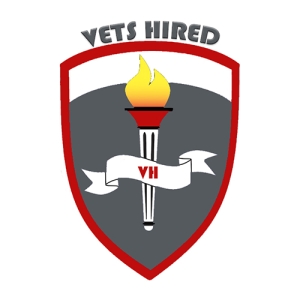Finding Purpose: Volunteer and Non-Profit Opportunities for Veterans
Many veterans seek a sense of purpose and fulfillment beyond their military careers. Engaging in volunteer and non-profit opportunities offers a meaningful way for veterans to continue serving their communities, make a positive impact, and find a sense of purpose.
Volunteer Opportunities for Veterans:
a) Veteran-Specific Organizations: Many non-profit organizations focus specifically on supporting veterans and their families. These organizations often have volunteer programs tailored to address the unique needs and challenges faced by veterans. Opportunities may include mentoring fellow veterans, assisting with job placement, supporting mental health initiatives, or organizing community events.
b) Community Service: Veterans can contribute their skills and expertise to a wide range of community service activities. They can engage in projects such as disaster relief efforts, environmental conservation initiatives, youth mentoring programs, or providing assistance to homeless individuals. These activities allow veterans to continue their service while positively impacting their communities.
c) Skills-Based Volunteering: Veterans possess a diverse set of skills acquired during their military service. These skills, such as leadership, teamwork, problem-solving, and project management, can be invaluable to non-profit organizations. Veterans can volunteer their expertise by serving on boards, offering strategic guidance, providing training and workshops, or assisting with organizational development.
Non-Profit Employment Opportunities for Veterans:
a) Program Management: Veterans’ experience in planning and executing complex operations makes them well-suited for program management roles within non-profit organizations. They can oversee initiatives, coordinate resources, monitor progress, and ensure the successful implementation of projects.
b) Fundraising and Development: Veterans’ strong communication and networking skills can be harnessed in fundraising and development positions. They can contribute to securing financial resources, building relationships with donors, organizing fundraising events, and developing strategic fundraising plans.
c) Operations and Logistics: Veterans’ expertise in logistics and operations management can be invaluable in non-profit organizations. They can support efficient day-to-day operations, optimize processes, manage volunteers, and coordinate logistical aspects of programs and events.
d) Advocacy and Policy: Veterans are well-versed in navigating complex systems and advocating for causes. They can contribute to non-profit organizations by engaging in advocacy efforts, shaping policies, and representing the organization’s interests in governmental and community settings.
Finding Volunteer and Non-Profit Opportunities:
1. Research and Self-Reflection: Start by reflecting on your interests, values, and causes that resonate with you. Research non-profit organizations that align with your passions and goals. Consider areas such as education, healthcare, environmental conservation, veteran support, or community development.
2. Reach Out to Veteran-Specific Organizations: Many non-profit organizations specifically cater to veterans and offer volunteer opportunities tailored to their unique needs and experiences. Explore organizations like Team Rubicon, The Mission Continues, or local veteran assistance programs to find opportunities that resonate with you.
3. Utilize Online Platforms: Numerous websites and online platforms specialize in connecting volunteers with non-profit organizations. Websites like VolunteerMatch, Idealist, and All for Good provide comprehensive databases of volunteer opportunities searchable by location and interest.
4. Local Community Engagement: Engage with your local community by attending community events, joining local civic organizations, or reaching out to local non-profits directly. These grassroots connections can lead to meaningful volunteer opportunities within your immediate area.
Benefits of Volunteer and Non-Profit Engagement for Veterans:
1. Continued Sense of Purpose: Volunteering and working in the non-profit sector provide veterans with a continued sense of purpose, allowing them to channel their skills and experiences towards meaningful causes.
2. Skill Utilization and Development: Veterans can leverage their military-acquired skills and develop new ones by engaging in volunteer and non-profit work. These experiences enhance their professional repertoire and make them more competitive in the job market.
3. Networking and Community Engagement: Engaging in the non-profit sector allows veterans to expand their professional networks, connect with like-minded individuals, and build relationships with professionals in various fields.
4. Personal Growth and Well-Being: Volunteering and working in non-profit organizations often lead to personal growth, increased self-confidence, and improved well-being. These experiences provide opportunities for veterans to learn, contribute, and make a positive impact, leading to a sense of fulfillment.
Volunteering and non-profit opportunities offer veterans a pathway to continue their service, make a difference in their communities, and find fulfillment in their civilian lives. From volunteering with veteran-specific organizations to pursuing employment in the non-profit sector, veterans bring a unique set of skills, experiences, and values that can positively impact organizations and causes. By embracing these opportunities, veterans can find new avenues to contribute, grow personally and professionally, and continue their journey of service beyond the military.



